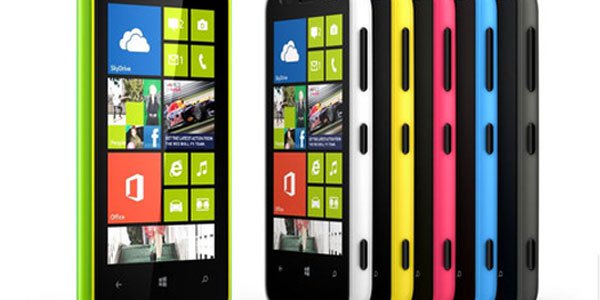What Cheap Smartphones Could Mean for African Gambling
Posted: February 24, 2014
Updated: October 4, 2017

There is a great demand for mobile Internet access in Africa, but locals still can’t afford to buy expensive smartphones.
Despite its slow infrastructural and social development, Africa has a flourishing gambling market. Over the past decade, the industry has grown and gained a lot of popularity. Several countries allow land-based casinos and gambling machines, but the online and mobile markets are making impressive progress.
While there are several casinos in South Africa and Egypt, and certain countries allow internet gambling or run their own online monopolies, the African gambling industry is still far from reaching its full potential. Analysts predict that Africa’s Internet and mobile coverage will continue to spread at fast pace, which could mean the future of African gambling lies in mobile casinos.
Africa getting connected
Top 10 internet countries in Africa:
• Nigeria – 48.4 million users
• Egypt – 29.8 million
• Morocco -16.5 million
• Kenya – 12 million
• South Africa – 8.5 million
Africa is the second largest continent after Asia, but it is home to some of the world’s poorest countries. There are more than one billion people living here and despite the infrastructural challenges, consumer demand for technology has grown over the past decade.
At the moment, Africa has over 167 million Internet users and the Internet penetration rate is at about 16% continent-wide. A study conducted by Mushroom Networks and published at the end of last year reveals that only 7% of households have Internet access. Apparently, 18.9% of African users access the Internet from work and only 9.8% of them use it at home.
With these figures, the future of online gambling might not look too bright, but here’s the trick: almost 60% of Nigeria’s web traffic comes via cell phones. The mobile industry has skyrocketed over the last 10 years, with statistics indicating a 44% increase, much more than anyone can expect from an underdeveloped society.
The progress made during the past few years is impressive and all statistics point to the same increasing trend. A study conducted by the McKinsey Global Institute has found that, if the Internet spreads at the same rate as mobile phone usage, the market could grow by $300 billion by 2025.
Mobile market booming
While Internet usage has been moving forward nicely, the mobile phone market has exploded. The 44% increase recorded between the years 2000 and 2012 is actually the highest growth rate in the world.
There are more than 650 million mobile-phone subscribers across the continent. Compared to the 167 million Internet users, the number is much higher. Smartphones, however, are still not widespread. There are 93 million mobile broadband subscriptions (11% penetration) but the 41% year-to-year growth rate is remarkable.
Nigeria has a population of 170 million and more than 100 million of them use cell phones. Almost 58% of the country’s web traffic is via mobile phones, compared to a 10% average world-wide. Egypt has 71.4 million mobile phone users, but only 78.3 million residents.
Untapped potential
Clearly, cell phones are very popular across the continent and the demand for new technologies is rising, but locals are still not rich enough to afford smartphones. Most mobile phone subscribers use feature phones, which only have voice calls and other basic functions. All this could change if companies would start producing cheaper devices.
While major brands keep launching new and more expensive models, one company did however think of offering an affordable smartphone. Famous for its Firefox browser, Mozilla recently introduced a prototype that would only cost $25 and could be perfect for the developing world. The model was developed with the help of a Chinese company called Spreadtrum.
The device does not come with the fancy features found on iPhones or Samsung Galaxy phones and it runs Mozilla’s own operating system instead of Android or iOS, but it allows users to easily access the internet over through a mobile browser. Mozilla’s device could be the perfect product for the African market, where people want to be able to access Internet services on the go, but simply can’t afford to pay hundreds of dollars for a smartphone.
It’s the mobile casino gambling industry’s turn to grow and spread across the continent, but with so many infrastructural and social impediments, there is simply no telling how long it will be until the market reaches its full potential.
















